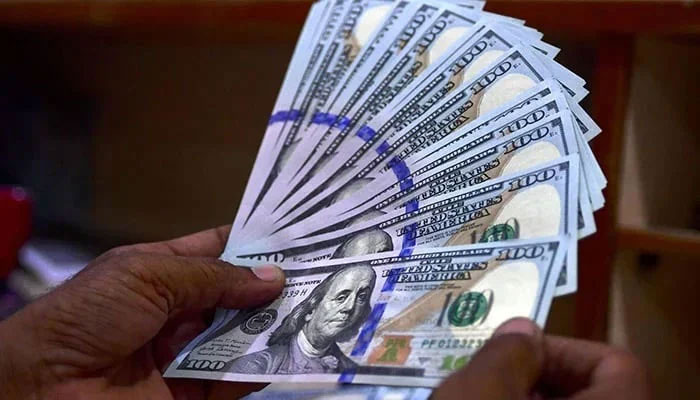Path to economic stability
The most recent economic data provides a detailed and subtle view of Pakistan’s financial situation
Pakistan has a crucial role in the complex web of global geopolitics, facing both difficulties and opportunities that converge at the intersection of democracy, sovereignty, and economic stability.
Amid a changing economic landscape marked by unpredictability and creativity, Pakistan is currently facing a critical moment where the concepts of democracy and the exercise of national independence are closely linked to the country’s economic future.
The most recent economic data provides a detailed and subtle view of Pakistan’s financial situation. Pakistan has shown resilience in its economic recovery efforts, despite the significant socio-economic repercussions of the Covid-19 pandemic. Recent statistics from the State Bank of Pakistan (SBP) indicate that the country’s GDP growth is displaying encouraging indications of recovery, with projections suggesting a consistent upward trend. The revival, driven by solid governmental initiatives and a growing digital economy, highlights Pakistan’s ability to withstand challenges.
However, beneath the surface of economic expansion, a complex web of challenges threatens Pakistan’s autonomy and democratic aspirations. Income disparity, institutional nepotism, and political turmoil are the primary hurdles that can erode public trust in democratic institutions and impede the country’s socioeconomic progress.
Pakistan’s reliance on external financial sources and its susceptibility to geopolitical pressures underscore the delicate balance between autonomy and economic interdependence. To effectively address these challenges, Pakistan must adopt a comprehensive strategy that prioritizes economic inclusiveness, openness and accountability. At the heart of this strategy is the promotion of democratic ideals, empowering citizens to actively participate in decision-making processes that shape their economic future.
In the face of complex geopolitical dynamics, Pakistan’s pursuit of economic stability and sovereignty is further complicated by external demands and regional complexity. Positioned at the crossroads of South Asia, Central Asia, and the Middle East, Pakistan’s strategic location grants it a pivotal role in the global geopolitical arena. However, this geostrategic prominence also exposes Pakistan to the ebbs and flows of regional rivalries and global power conflicts.
To safeguard its economic resilience and sovereignty, Pakistan must tread the current geopolitical currents with caution and foresight. The surge in global economic alignments and the emergence of new power centres necessitate a well-balanced foreign strategy that emphasizes economic diplomacy and leverages strategic ties. By engaging strategically with regional stakeholders and actively participating in multilateral forums, Pakistan can chart a course towards economic development while upholding the values of national sovereignty and democratic governance.
Pakistan may enhance its democratic institutions and defend the values of independence by promoting open dialogue and civic involvement, even in the face of external challenges. Pakistan should utilize its advantageous geographical location and growing young population to take advantage of developing economic prospects in areas such as technology, renewable energy and sustainable agriculture.
Pakistan can unleash its complete economic potential and establish its authority on the world stage by investing in the development of human capital and promoting entrepreneurship driven by innovation. At some point, the convergence of democracy, autonomy and economic prosperity presents obstacles and prospects for Pakistan.
Pakistan may achieve sustainable development and reaffirm its territorial integrity globally by adopting democratic ideals, encouraging economic inclusivity and stimulating prosperity driven by innovation. Amid the shifting dynamics of the global economy, Pakistan is ready to take advantage of the opportunity and determine its future based on democratic ideals and national independence.
Dr Muhammad Ahmad is an immigration and human rights lawyer based in Birmingham (UK) and a lecturer at the University of Law, Birmingham.
Dr Zoofishan Hayat is a lecturer at the University of the West of Scotland.
-
 Mexico’s President Considers Legal Action Over Elon Musk Cartel Remark
Mexico’s President Considers Legal Action Over Elon Musk Cartel Remark -
 Prince William Hits The Roof With The Andrew Saga Bleeding Into Earthshot
Prince William Hits The Roof With The Andrew Saga Bleeding Into Earthshot -
 HBO Gives Major Update About 'Industry' Season Five And Show's End
HBO Gives Major Update About 'Industry' Season Five And Show's End -
 Donnie Wahlberg Responds To 'Boston Blue' Backlash: 'Nobody Was More Disappointed Than Me'
Donnie Wahlberg Responds To 'Boston Blue' Backlash: 'Nobody Was More Disappointed Than Me' -
 Jennifer Garner Gets Emotional Over Humble Career Start: 'It Makes Me Want To Cry'
Jennifer Garner Gets Emotional Over Humble Career Start: 'It Makes Me Want To Cry' -
 Princess Beatrice Told An Acquaintance That She ‘likes’ Jeffrey Epstein: Grim Verdict Drops
Princess Beatrice Told An Acquaintance That She ‘likes’ Jeffrey Epstein: Grim Verdict Drops -
 Late Katherine Short's Neighbours Give Insights Into Her 'peace Loving' Personality Post Suicide
Late Katherine Short's Neighbours Give Insights Into Her 'peace Loving' Personality Post Suicide -
 Fresh Details Of King Charles, Queen Camilla's US Visit Emerge Amid Andrew Investigation
Fresh Details Of King Charles, Queen Camilla's US Visit Emerge Amid Andrew Investigation -
 Iran 'set To Buy' Chinese Carrier-killer Missiles As US Forces Gather In Region
Iran 'set To Buy' Chinese Carrier-killer Missiles As US Forces Gather In Region -
 Prince Harry And Meghan Unlikely To Meet Royals In Jordan
Prince Harry And Meghan Unlikely To Meet Royals In Jordan -
 Hero Fiennes Tiffin Shares Life-changing Advice He Received From Henry Cavill
Hero Fiennes Tiffin Shares Life-changing Advice He Received From Henry Cavill -
 Savannah Guthrie's Fans Receive Disappointing News
Savannah Guthrie's Fans Receive Disappointing News -
 Prince William Steps Out For First Solo Outing After Andrew's Arrest
Prince William Steps Out For First Solo Outing After Andrew's Arrest -
 Jake Paul Chooses Silence As Van Damme Once Again Challenges Him To Fight
Jake Paul Chooses Silence As Van Damme Once Again Challenges Him To Fight -
 Google Disrupts Chinese-linked Hacking Groups Behind Global Cyber Attacks
Google Disrupts Chinese-linked Hacking Groups Behind Global Cyber Attacks -
 Four People Killed In Stabbing Rampage At Washington Home
Four People Killed In Stabbing Rampage At Washington Home




